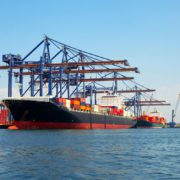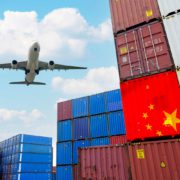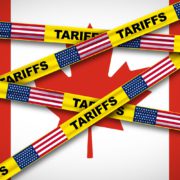Successfully shipping goods under the new tariff regime requires meticulous attention to customs procedures, tariff classification, and regulatory compliance. Both U.S. exporters and Canadian importers should take proactive steps to avoid delays and unexpected costs. Below, we outline key aspects of navigating these regulations and offer guidance.
1. Understand Which Goods Are Affected and Plan Accordingly
Begin by determining if your goods are on the affected list. Canada’s Department of Finance has published a detailed list of U.S.-origin products subject to the 25% surtax, by tariff code. Check the Harmonized System (HS) code for each product you ship across the border. Common affected categories include various steel mill products, aluminum products, processed foods, alcoholic beverages, household appliances, apparel, and more (canada.ca). If an item’s HS code appears on the list (or falls within a listed subheading), it will incur the surtax. Knowing this in advance allows you to estimate landed costs and adjust pricing before the goods move. If a product is not on the list, you should still be prepared to prove its status to CBSA (see point 3 on origin documentation), because the default assumption may be that U.S.-origin goods are dutiable unless shown otherwise.
2. Classify Goods Accurately (Tariff Classification)
Proper tariff classification is crucial under these new rules. The 25% surtax applies at the tariff item level (a very specific 8- or 10-digit code). Misclassifying a product could either unnecessarily subject it to the surtax or cause non-compliance if it should have been subject. Work with a customs specialist or broker to review classifications for all U.S.-sourced products. Ensure you are using the latest Canadian Customs Tariff schedule references. If there is ambiguity in how to classify a product (for example, a multi-purpose device that could fall under an electronics category or a tools category), seek a binding ruling from CBSA in advance (cbsa-asfc.gc.ca). A binding ruling provides legal certainty on the correct HS code and whether the surtax applies, which can save time and money at the border. Additionally, be aware of special classification provisions: Chapter 98 and 99 of Canada’s Customs Tariff. Most goods classified under Chapter 98 (personal exemptions, settlers’ effects, etc.) are exempt from the surtax (millerthomson.com). Similarly, many temporary importations or special classifications under Chapter 99 are exempt, except a few specific tariff items listed by the government millerthomson.com. Leverage these provisions if they legitimately apply – for instance, if you are importing goods for a trade show (which might qualify under a temporary import provision), those might not incur the surtax. Correct classification in such categories can legally avoid the 25% hit.
3. Verify and Document Country of Origin
The surtax only applies to goods that “originate in the U.S.,” defined essentially as goods eligible to be marked as products of the USA (cbsa-asfc.gc.ca). Therefore, if your supply chain involves U.S. distributors but the product is made elsewhere, you should make that clear. Provide proof of origin for all goods to CBSA (millerthomson.com). For commercial shipments, this typically means a statement on the commercial invoice or a separate certificate that includes the key data elements (importer, exporter, producer info; a description and HS code; origin criterion; and an authorized signature). These data elements align with the USMCA (CUSMA) certificate of origin format, which many companies already use. For casual (non-commercial) imports, the rule is that if an item is marked as made in the U.S. (or has no marking but no evidence of another origin), it will be treated as U.S. origin (millerthomson.com). So, individuals shipping items should be aware that tags like “Made in USA” could trigger the tariff. If an item is actually made in a third country (say, a German-made kitchen appliance sold from a U.S. store), include documentation or markings to show that non-U.S. origin. CBSA will waive the surtax if the goods are proven to be from a country other than the U.S., even if they arrive from a U.S. exporter (millerthomson.com). In practice, this means importers should gather certificates of origin from their suppliers for any non-U.S. goods. Taking this step can prevent paying 25% unnecessarily on goods that should be duty-free under normal MFN or FTA rates.
4. Manage Customs Clearance and Surcharge Collection (CBSA Processes)
The Canada Border Services Agency is responsible for collecting the 25% surtax at the border (cbsa-asfc.gc.ca). For commercial shipments, the surtax will be assessed on the value for duty (essentially the CIF value of the goods) and will appear on the customs accounting document (B3). Importers of record are liable to pay this surtax upon import (edc.ca). If you are an importer, ensure your customs broker is coding the entry properly (using the correct surtax code/field as per CBSA’s instructions – CBSA issued guidance on coding customs documents for this surtax (cbsa-asfc.gc.ca). The surtax is in addition to any other duties or taxes. Most U.S.-origin goods normally qualify for tariff-free treatment under USMCA, so you might not be used to paying duties – but now the surtax applies even though the base customs duty rate is 0%. If there are anti-dumping duties or excise taxes on the product, those still apply as well, on top of the 25% (millerthomson.com). Be prepared for the cash outlay: if you operate on CBSA’s account system (GST deferment and monthly payment of duties), the 25% will be part of your monthly statement of account. Monitor those statements closely to verify the amounts.
For courier shipments under the Courier Low Value Shipment (CLVS) program or postal mail, know that the surtax will be collected too. Typically, couriers will front the duty payment and then charge the recipient (plus a fee). As noted, even shipments that were previously duty-free under low-value exemptions may now incur the 25% if applicable (millerthomson.com). So, small businesses receiving lots of parcels should expect higher COD charges.
Critically, there was an in-transit exemption when the tariffs came into force: goods that were already in transit to Canada before March 4, 2025 are not subject to the surtax. This was a one-time transitional relief. If you had goods that left the U.S. and were en route on March 4, you can claim the exemption, but you need proof (e.g. shipping documents, cargo control documents showing the ship date) (millerthomson.com). Importers should present this evidence to CBSA to waive the surtax on those shipments. Going forward, this is less relevant, but it underscores how timing can affect duty liability. Keep an eye on announcements – if tariffs are expanded or ended, the effective times will matter for whether a given shipment is taxed.
5. Utilize Remission Opportunities and Duty Deferral
The Canadian government has a remission process for these counter-tariffs – essentially a way to request an exception or refund in special cases. If the surtax causes severe hardship or there are no alternate suppliers, companies can apply for remission. This is not guaranteed relief; it’s decided case-by-case and requires substantial justification (detailed information on how the tariffs affect your operations, financial impact, efforts to find alternatives, etc.) (edc.ca). If you believe your business qualifies (for example, you import a critical input that is unavailable outside the U.S.), consider preparing a remission application using the template provided by the Department of Finance (edc.ca). While awaiting a decision, you still must pay the tariffs, but if approved, you could get refunds. It’s a lengthy process, so this is more of a contingency plan than a day-to-day solution.
More immediately useful is leveraging CBSA’s Duty Deferral Programs – specifically, the Customs Bonded Warehouse (CBW) program or the Duty Drawback program. A bonded warehouse allows you to store imported goods without paying duties or surtaxes until they are removed into the Canadian market. This can be a strategy if you want to delay payment in hopes the tariffs might be lifted, or if you plan to re-export some goods. Goods in a bonded facility do not incur the 25% surtax until they are released for consumption in Canada (ghy.com). If you re-export them (ship them to another country) directly from the warehouse, you never pay the surtax at all, because the goods never formally entered Canadian commerce (ghy.com). Importers can work with logistics providers who operate bonded warehouses to use this program. Keep in mind, there are costs to warehousing and the goods must remain under customs control (with reporting requirements), but it can save significant duty costs or at least defer the cash outlay.
The Duty Drawback program is another tool: if you import U.S. goods, pay the 25% surtax, and later export those goods (or products made from them) abroad, you can apply for a refund of the surtax proportional to the exported amount. For example, a manufacturer imports U.S. aluminum, pays 25%, makes finished products and exports some to Europe – they can get a drawback (refund) of the surtax for the portion of aluminum that went into the exports. This requires meticulous record-keeping and a formal application, but it ensures Canadian businesses remain competitive internationally by not ultimately bearing the cost of retaliatory tariffs when serving foreign markets.
6. Adapt Contracts and Incoterms
It’s important to clarify in your contracts who is responsible for the surtax. As the EDC Trade Insights advises, the importer of record is normally on the hook by default (edc.ca). Canadian importers may want U.S. suppliers to become the importer of record (shifting the administrative burden), whereas U.S. exporters might prefer to stick to terms where the Canadian buyer handles it. Review and, if necessary, renegotiate contracts to explicitly state how tariffs are handled (edc.ca). If you agree on new terms (like DDP), adjust pricing and liability clauses accordingly. Also, consider adding clauses to address sudden tariff changes in the future (a “tariff surcharge” clause or price-adjustment mechanism tied to government-imposed duties). Both parties in a cross-border transaction benefit from this clarity to avoid disputes when the CBSA bill comes due. Consulting legal counsel for contract language is advisable given the stakes (edc.ca).
7. Stay Informed and Engage in Dialogue
The trade situation is fluid. Monitor official updates from the CBSA, Department of Finance Canada, and credible news sources about any changes to the tariff policy. Tariff rates could change, new product exemptions could be announced, or the dispute might resolve leading to removal of tariffs. For instance, if the U.S. removes its tariffs on Canadian goods, Canada has stated it will lift its counter-tariffs in response. Engaging with industry associations and trade councils can give you a voice; many associations gather input to petition the government during comment periods. Canada’s 21-day consultation for the second phase of tariffs was one such opportunity (canada.ca). By participating, businesses can potentially influence which products get hit. Even outside formal comment periods, providing feedback to government or through industry groups about the real-world impacts (job losses, cost inflation, etc.) can help shape remission decisions or future policy.
Navigating these tariffs is challenging, but with careful compliance measures and strategic adjustments, companies can continue cross-border operations successfully. The support of experienced customs and logistics professionals is often the deciding factor in mitigating delays and avoiding compliance missteps. In the next section, we’ll discuss how Euro-American Worldwide Logistics applies its expertise in customs brokerage, freight forwarding, and trade compliance to help clients manage these very challenges – from clearing complicated shipments efficiently to reconfiguring supply chains for cost savings.
Contact us today to learn how our experienced team can support your logistics needs and assist you in managing these complex changes.









